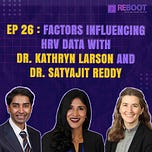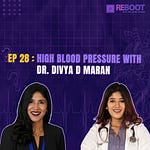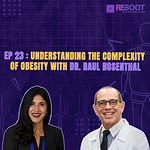Summary
This conversation delves into the significance of heart rate variability (HRV) and its implications for health and fitness. Dr. Reddy and Dr. Larson discuss how HRV serves as a physiological tool to assess the balance between the sympathetic and parasympathetic nervous systems, the factors influencing HRV, and how wearables can help track and improve heart health. They also explore the importance of heart rate recovery, exercise capacity, and the future of wearables integrated with AI technology.
Takeaways
- Heart rate variability (HRV) is a key indicator of autonomic nervous system balance.
- HRV should be interpreted relative to individual baselines rather than across different individuals.
- Physical activity and adequate rest can improve HRV.
Sleep quality and lifestyle choices significantly impact HRV.
- Heart rate recovery is an important measure of cardiovascular fitness.
- Wearables provide valuable data but should be interpreted cautiously.
- Fitness level is a crucial prognostic indicator for longevity.
- AI integration in wearables may enhance health monitoring capabilities.
- Understanding personal fitness goals is essential for effective exercise planning.
- Overtraining syndrome can be monitored through changes in HRV and resting heart rate.
Chapters
00:00 Understanding Heart Rate Variability
02:48 Interpreting Heart Rate Variability
05:58 Factors Influencing Heart Rate Variability
09:09 Improving Heart Rate Variability
12:00 The Role of Sleep and Lifestyle
14:51 Heart Rate Recovery and Its Importance
18:10 Heart Rate Variability in Clinical Settings
21:09 Exercise Capacity and Longevity
24:13 Wearables and Fitness Tracking
26:57 Navigating Wearable Data
29:47 The Future of Wearables and AI
FOLLOW ME ON SOCIAL MEDIA
INSTAGRAM : https://www.instagram.com/docarasimaran/
TWITTER : https://x.com/ArasiMaran
The information, including but not limited to audio, text, graphics, images and other material contained in this episode are for informational purposes only. No material in this episode is intended to be a substitute for professional medical advice, diagnosis or treatment. Always seek the advice of your physician or other qualified health care provider with any questions you may have regarding a medical condition or treatment and before undertaking a new health care regimen, and never disregard professional medical advice or delay in seeking it because of something you have heard in this podcast.










